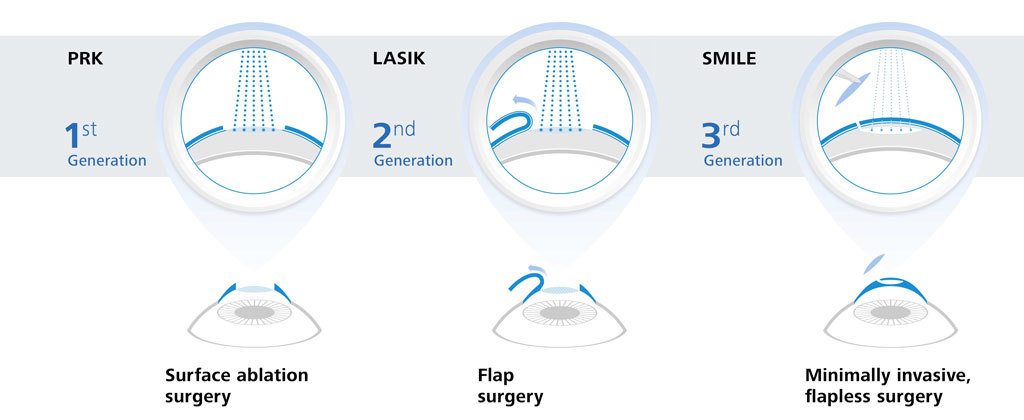Pondering SMILE Surgery? Investigate Crucial Facets And Understandings That Will Aid You In Getting To A Thoughtful Decision Worrying Your Visual Future
Pondering SMILE Surgery? Investigate Crucial Facets And Understandings That Will Aid You In Getting To A Thoughtful Decision Worrying Your Visual Future
Blog Article
Web Content By-Bridges Thestrup
If you're pondering SMILE eye surgical treatment, consider this: are you prepared to embrace potential visual liberty, or does the idea of any dangers make you wait? Topography Guided PRK Cost will rest on a mindful equilibrium of weighing the advantages against the uncertainties. It's vital to dig deeper into the nuances of SMILE surgical procedure to make an enlightened option that lines up with your aesthetic goals.
Understanding SMILE Eye Surgery
When considering SMILE Eye Surgical treatment, it is necessary to understand the treatment and its advantages. SMILE, which means Tiny Cut Lenticule Removal, is a minimally invasive laser eye surgical treatment that remedies common vision issues like nearsightedness (nearsightedness).
Throughout the procedure, your eye specialist will certainly use a femtosecond laser to produce a small incision in your cornea. Through this laceration, a small disc of tissue called a lenticule is removed, improving the cornea and correcting your vision.
Among the crucial benefits of SMILE Eye Surgical procedure is its fast recuperation time. Lots of people experience boosted vision within a day or more after the treatment, with minimal pain.
Additionally, SMILE is recognized for its high success price in offering long-term vision correction. Unlike LASIK, SMILE does not need the development of a flap in the cornea, lowering the risk of issues and enabling a much more stable corneal framework post-surgery.
Understanding the treatment and its advantages is vital when taking into consideration SMILE Eye Surgical procedure for vision improvement.
Advantages and disadvantages of SMILE
Taking Into Consideration SMILE Eye Surgical treatment for vision modification includes different benefits and possible disadvantages.
One of the main pros of SMILE is its minimally intrusive nature, as it involves a tiny laceration and commonly causes fast recuperation times. The procedure is likewise known for causing minimal pain and completely dry eye symptoms post-surgery contrasted to various other vision correction techniques. Additionally, SMILE has actually been revealed to provide superb visual end results, with many clients attaining 20/20 vision or much better.
On the other hand, a possible con of SMILE is that it might not be suitable for people with serious refractive errors, as the therapy variety is rather limited compared to LASIK. An additional factor to consider is that the learning contour for surgeons applying SMILE can influence the availability of seasoned service providers in specific areas.
It's important to evaluate these benefits and drawbacks thoroughly when deciding if SMILE is the appropriate selection for your vision adjustment demands.
Figuring Out Qualification for SMILE
To identify if you're qualified for SMILE eye surgical treatment, your ophthalmologist will certainly carry out a detailed assessment of your eye wellness and vision requirements. Throughout this evaluation, variables such as the security of your vision prescription, the density of your cornea, and the overall wellness of your eyes will certainly be evaluated.
Typically, read the full info here for SMILE are over 22 years of ages, have a secure vision prescription for at the very least a year, and have healthy and balanced corneas without problems like keratoconus.
Your ophthalmologist will also consider your overall eye health, any existing eye conditions, and your lifestyle needs to identify if SMILE is the ideal choice for you. It's necessary to connect any kind of specific aesthetic requirements or problems you might have throughout this evaluation to guarantee that the treatment straightens with your assumptions.
If you aren't qualified for SMILE, your optometrist may suggest alternative vision correction options that much better match your private needs and eye wellness status.
Conclusion
Eventually, choosing whether SMILE eye surgery is right for you needs careful consideration of your private eye health and wellness and visual needs. Talk to your ophthalmologist to determine your qualification for the procedure and weigh the possible benefits and downsides. Remember to communicate any type of issues or questions you might have during the analysis procedure to make an informed choice about your vision modification options.
